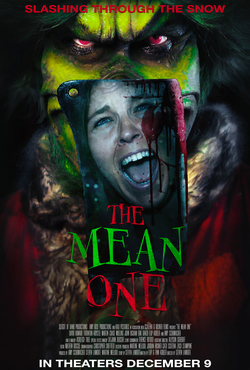Film promotion is the practice of promotion specifically in the film industry, and usually occurs in coordination with the process of film distribution. Sometimes called the press junket or film junket, film promotion generally includes press releases, advertising campaigns, merchandising, franchising, media and interviews with the key people involved with the making of the film, like actors and directors. As with all business, it is an important part of any release because of the inherent high financial risk; film studios will invest in expensive marketing campaigns to maximize revenue early in the release cycle. Marketing budgets tend to equal about half the production budget. Publicity is generally handled by the distributor and exhibitors.

A trailer is a commercial advertisement, originally for a feature film that is going to be exhibited in the future at a movie theater/cinema. It is a product of creative and technical work.
Filmmaking is the process by which a motion picture is produced. Filmmaking involves a number of complex and discrete stages, starting with an initial story, idea, or commission. It then continues through screenwriting, casting, pre-production, shooting, sound recording, post-production, and screening the finished product before an audience that may result in a film release and an exhibition. Filmmaking occurs in a variety of economic, social, and political contexts around the world. It uses a variety of technologies and cinematic techniques.

Pathé or Pathé Frères is the name of various French businesses that were founded and originally run by the Pathé Brothers of France starting in 1896. In the early 1900s, Pathé became the world's largest film equipment and production company, as well as a major producer of phonograph records. In 1908, Pathé invented the newsreel that was shown in cinemas before a feature film.

International Standard Audiovisual Number (ISAN) is a unique identifier for audiovisual works and related versions, similar to ISBN for books. It was developed within an ISO TC46/SC9 working group. ISAN is managed and run by ISAN-IA.
In filmmaking, dailies are the raw, unedited footage shot during the making of a motion picture. The term comes from when movies were all shot on film because usually at the end of each day, the footage was developed, synced to sound, and printed on film in a batch for viewing the next day by the director, selected actors, and film crew members. After the advent of digital filmmaking, "dailies" were available instantly after the take and the review process was no longer tied to the overnight processing of film and became more asynchronous. Now some reviewing may be done at the shoot, even on location, and raw footage may be immediately sent electronically to anyone in the world who needs to review the takes. For example, a director can review takes from a second unit while the crew is still on location or producers can get timely updates while travelling. Dailies serve as an indication of how the filming and the actors' performances are progressing. The term was also used to describe film dailies as "the first positive prints made by the laboratory from the negative photographed on the previous day".
A film distributor is responsible for the marketing of a film. The distribution company may be the same with, or different from, the production company. Distribution deals are an important part of financing a film.

A film poster is a poster used to promote and advertise a film primarily to persuade paying customers into a theater to see it. Studios often print several posters that vary in size and content for various domestic and international markets. They normally contain an image with text. Today's posters often feature printed likenesses of the main actors. Prior to the 1980s, illustrations instead of photos were far more common. The text on film posters usually contains the film title in large lettering and often the names of the main actors. It may also include a tagline, the name of the director, names of characters, the release date, and other pertinent details to inform prospective viewers about the film.

U.M. & M. TV Corporation was an American media company best known as the original purchaser of the pre-October 1950 short films and cartoons produced by Paramount Pictures, excluding Popeye and Superman. The initials stand for United Film Service, MTA TV of New Orleans, and Minot T.V.

Associated Artists Productions, Inc. (a.a.p.) later known as United Artists Associated was an American distributor of theatrical feature films and subjects for television. Associated Artists Productions was the copyright owner of the Popeye shorts by Paramount Pictures, and the pre-1948 color Looney Tunes and Merrie Melodies series of shorts produced by Warner Bros.

A film still is a photograph, taken on or off the set of a movie or television program during production. These photographs are also taken in formal studio settings and venues of opportunity such as film stars' homes, film debut events, and commercial settings. The photos were taken by studio photographers for promotional purposes. Such stills consisted of posed portraits, used for public display or free fan handouts, which are sometimes autographed. They can also consist of posed or candid images taken on the set during production, and may include stars, crew members or directors at work.

China Film Group Corporation (CFGC), is the largest, most influential film enterprise in the People's Republic of China, owned by the Publicity Department of the Chinese Communist Party. According to Forbes, it is a state monopoly that all imported films have to work with. It also runs theaters and finances, produces, and distributes films. In 2014, the company was the largest film distributor in China, with 32.8% of the market.

Thomas William Chantrell was a British illustrator and cinema poster artist.

A film – also called a movie, motion picture, moving picture, picture, photoplay or (slang) flick – is a work of visual art that simulates experiences and otherwise communicates ideas, stories, perceptions, feelings, beauty, or atmosphere through the use of moving images. These images are generally accompanied by sound and, more rarely, other sensory stimulations. The word "cinema", short for cinematography, is often used to refer to filmmaking and the film industry, and to the art form that is the result of it.
Entertainment One Ltd., trading as eOne, is an American-owned Canadian multinational entertainment company. Based in Toronto, Ontario, the company is primarily involved in the acquisition, distribution, and production of films and television series. The company was listed on the London Stock Exchange before it was acquired by Hasbro on December 30, 2019.

FilmDistrict Distribution LLC. was an American independent motion picture company based in Los Angeles. It specialized in acquisitions, distribution, production, and financing. It was founded in September 2010 by Bob Berney and Peter Schlessel in partnership with Graham King and Timothy Headington.

Pantelion Films is an American film production company that was created in 2010 and based in Santa Monica, California. The studio's goal is to bring wider theatrical distribution of movies aimed at Latino audiences. It is backed by TelevisaUnivision and Lionsgate. It has made theatrical relationships with movie exhibition chains including Regal Entertainment Group, AMC Theatres, Cinemex, and Cinemark. The studio's first film was 2011's From Prada to Nada, which Lionsgate and Grupo Televisa announced it had commissioned for a television series that did not materialize in 2012.
C. V. Kumar is an Indian Tamil film producer, director and distributor who heads the production studio Thirukumaran Entertainment. Known for producing innovative and critically acclaimed films, Kumar has also primarily introduced new talent into the film industry in terms of actors and technicians. His first three films, Attakathi, Pizza and Soodhu Kavvum won critical acclaim as well as bringing in revenue of over ₹50 crore (US$6.3 million). After producing successful films, Kumar began work on his first directorial venture in 2014.

Zee Studios is a film production and distribution studio established in 2012, as a subsidiary of Zee Entertainment Enterprises Limited. Known to include a library of productions under its predecessor banners Zee Motion Pictures and Zee Limelight, it operates as a cinematic content engine with a presence in feature film production, distribution, international distribution, promotion, advertising and revenue generating streams.

The Mean One is a 2022 American Christmas slasher film directed by Steven LaMorte and written by Flip and Finn Kobler. The film is a horror parody of the 1957 children's book How the Grinch Stole Christmas! by Dr. Seuss, and stars David Howard Thornton as the eponymous character, with Krystle Martin, Chase Mullins, John Bigham, Erik Baker, Flip Kobler, and Amy Schumacher in supporting roles. It follows a young woman as she goes on a mission to defend her town from a green homicidal humanoid creature who goes on a murderous rampage during the holiday season. Because the film is an unauthorized parody, it never uses the language of the original book.













